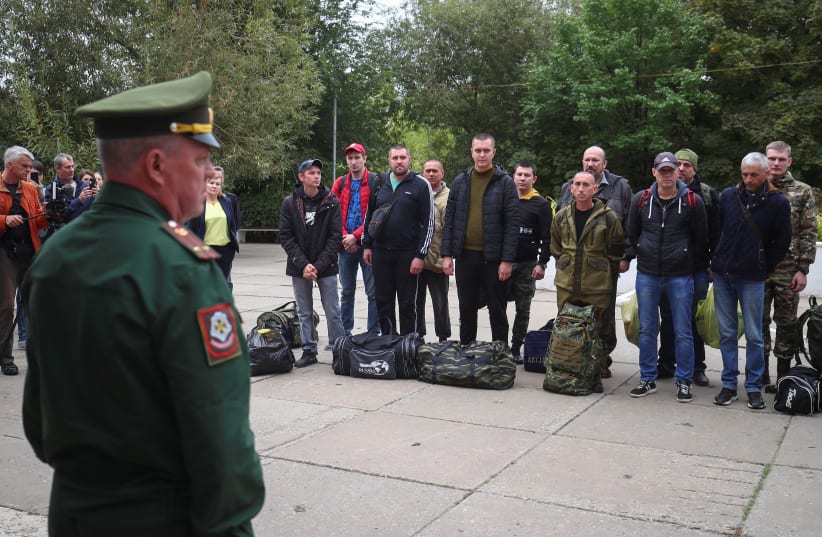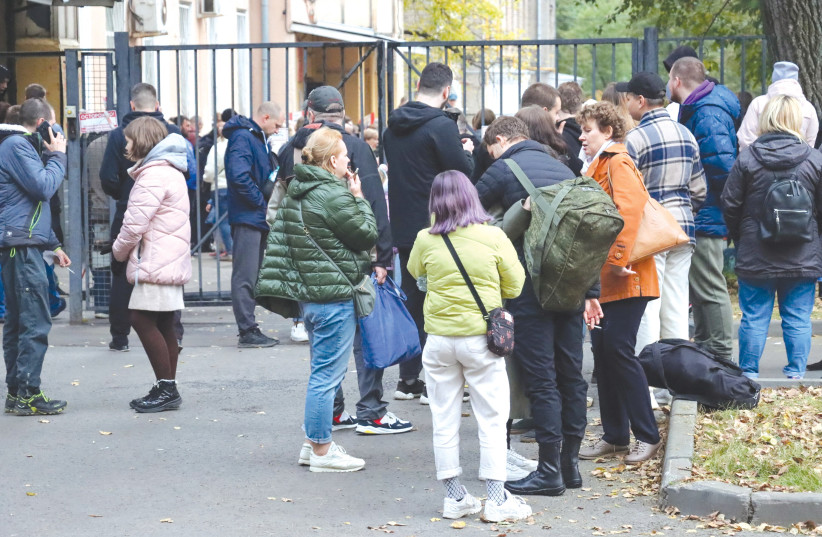Russia is sending drug addicts to war in an effort to meet its mobilization quota, according to a report by the Ukrainian Center of National Resistance.
“The information about the massive mobilization of drug addicts was confirmed by one of the Russian soldiers who surrendered to the Resistance Movement,” the Center reported. “According to him, he was not cured of addiction and continued to use drugs while fighting in Zaporizhzhia. The man took the drugs with him as medicine.”
A similar report was made by the General Staff of the Armed Forces of Ukraine.
“Among the already recruited personnel, there is a large number of people with drug and alcohol addiction,” the General Staff said.
Putin is preparing for a mobilization wave
Ukrainian military intelligence reported that Russian President Vladimir Putin is prepared to order a second wave of Russian mobilization which includes the coerced recruitment of convicts and not-yet-citizens in addition to the drug addicts. In addition to this recruitment strategy is the expansion of eligibility requirements.
As of September 2022, the Russian Armed Forces consisted of approximately 1.35 million personnel. Ukrainian intelligence officials predict that Russia may announce a plan to mobilize an additional 500,000 soldiers “in the coming days.”
“Russia is actively preparing for the announcement of the next wave of mobilization,” revealed intelligence officials. “The laws of the Russian Federation regulating mobilization are being amended at [the] legislative level. The active preparation of training centers is ongoing as well.”
An example of the Kremlin’s legislative preparations for mobilization is the recently issued federal prohibition against groups of 20 or more people meant to restrict draft protests. The Kremlin has instituted “volunteer patrols” of three-to-five people to monitor highly populated gathering places.
“Russia is actively preparing for the announcement of the next wave of mobilization."
Ukrainian military intelligence officials
“Their task is to prevent a possible congestion of people in order to prevent possible protest actions,” explained Ukrainian intelligence officials. “According to the received instructions, any group of more than 20 people is considered ‘suspicious.’”
Convicts offered erasure of criminal records if they serve
To leverage people into enlisting, the Kremlin has weaved leniency into longstanding legislation. Military leadership has continued to search for convicts willing to enlist, as they did in the first wave of mobilization. They promise to remove the criminal records of minor offenders in exchange for 3 months of service; recidivists and serious offenders, in exchange for 6 months of service.
“The United Kingdom Ministry of Defense (UK MoD) reported on January 13 that Russian officials plan to use convict labor to address increased wartime production demands and labor shortages,” according to the Institute for the Study of War think tank, warning of the potential for the Kremlin to mobilize a large portion of the 400,000 inmates under its control.
russian state propaganda: «Mobilization cures drug addiction and defeats thuggery.»Another lie, as always. russian drug addicts, thugs, as well as rapists and murderers are defeated by the #UAarmy. pic.twitter.com/2ojSSdIDF1
— Defense of Ukraine (@DefenceU) December 17, 2022
“A man mobilized to the ranks of the Russian Federation because of the threat of appearing in court,” reported the Ukrainian Center of National Resistance. “He was arrested for driving a car without documents. In order not to go to trial, the man was offered to go to Ukraine.”
Military recruiters have even begun to offer Russian citizenship to migrants in exchange for enlisting. “Currently, draft-age men, who are applying to authorities to obtain Russian citizenship, are offered to sign a contract for military service. After that, the issue of acquiring the citizenship is automatically resolved,” disclosed Ukrainian intelligence.

